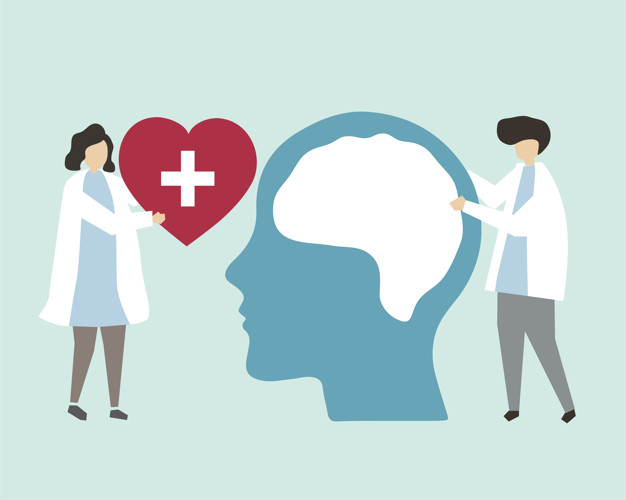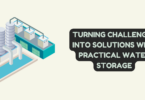
6 Essential Software Solutions for Mental Health Professionals
In the ever-evolving landscape of mental healthcare, technology has become a powerful ally for mental health professionals. Essential software solutions have become integral to streamlining and enhancing the practice of mental health professionals in 2023.
Mental health professionals need efficient and specialized software solutions to effectively manage patient information and treatment plans. One such critical tool is substance abuse EMR software, designed to streamline documentation and compliance processes for patients struggling with addiction. This software allows professionals to securely access and update patient records, track progress, and ensure regulatory requirements are met with ease. By utilizing substance abuse EMR software, mental health professionals can dedicate more time to providing quality care rather than getting bogged down by administrative tasks.
These software tools are designed to improve efficiency, patient care, and overall practice management.
This article explores the essential software solutions that mental health professionals should consider incorporating into their practice.
1. Electronic Health Records (EHRs)
Electronic health records (EHRs) refer to electronic formats of patient health records. They store information about a patient’s medical history, including diagnoses, treatment plans, and progress notes.
A recent report by Healthcare Innovation states that recently, Vandalia Health System signed a 10-year agreement to expand the use of Oracle Health’s Electronic Health Record (EHR) system across its entire network.
Vandalia Health System is a healthcare organization operating in multiple states, including West Virginia, Maryland, and Pennsylvania. It comprises nine hospitals, over 130 ambulatory locations, and a team of more than 1,200 doctors and advanced practice providers.
The decision to standardize on a single EHR platform for all Vandalia medical clinics aims to enhance care team coordination, improve the experiences of both patients and caregivers and strengthen the continuity of care across the entire system.
There are several benefits to using EHRs in mental health care. For example, EHRs can help to:
- Improve the quality of care: EHRs can help providers to track patient progress and to make informed treatment decisions.
- Improve communication: EHRs can help to improve communication between providers and patients and between providers themselves.
- Meet regulatory requirements: EHRs can help mental health professionals to meet regulatory requirements, such as those imposed by HIPAA.
2. Mental Health Billing Software
Mental health billing software plays a crucial role in streamlining and optimizing the billing process for mental health practices. Billing software helps mental health providers automate claims submission, coding, and revenue management tasks. This, in turn, reduces administrative burdens and minimizes errors.
Psyquel notes that the billing software tool offers features specific to mental health billing, such as support for billing codes related to therapy sessions, assessments, and other mental health services. Additionally, they often integrate with electronic health record (EHR) systems, enabling seamless transfer of patient information and facilitating accurate documentation for billing purposes.
Overall, mental health billing software empowers mental health practices to enhance efficiency, maximize reimbursement, and ensure compliance with billing regulations.
3. Telehealth Software
Telehealth software designed for mental health practitioners revolutionizes the delivery of mental healthcare services. This specialized software facilitates remote consultations, allowing practitioners to connect with clients through secure video conferencing and messaging platforms.
With features tailored to mental health, such as secure data transmission and virtual therapy tools, telehealth software ensures patient privacy and confidentiality while enabling effective therapeutic interventions. Additionally, these platforms often provide features for scheduling appointments, managing patient records, and processing billing, streamlining the administrative tasks associated with mental health practice.
Utilizing telehealth software can help mental health practitioners expand their reach, provide convenient access to care, and enhance the overall patient experience. Thus, promoting the delivery of effective and accessible mental healthcare services.
GlobeNewswire notes that with the convenience of accessing healthcare services, including consultations, at the tap of a button, telehealth platforms are rapidly gaining popularity among consumers. This growing trend is fueled by significant investments in IT infrastructure development and the increasing smartphone and internet usage rates worldwide.
According to a recent study conducted by Precedence Research, the global telehealth market revenue was projected to reach USD 102.7 billion in 2022 and is estimated to expand to USD 893.7 billion by 2032.
4. Assessment and Treatment Planning Software
Assessment and treatment planning software offer a range of features to support practitioners in conducting assessments, diagnosing mental health conditions, and developing tailored treatment plans. They provide structured frameworks and assessment tools, allowing for standardized and evidence-based evaluations.
Additionally, these software solutions enable practitioners to document treatment goals, interventions, and progress notes in a centralized system, ensuring easy access and improved collaboration among care teams.
With customizable templates, automated scoring, and outcome tracking features, assessment and treatment planning software enhance efficiency, accuracy, and effectiveness in mental health practice. Ultimately leading to improved client outcomes.
5. Document Management Software
Document management software plays a vital role in the practice of mental health professionals, enabling efficient organization and secure storage of patient-related documents. With this software, practitioners can digitize and centralize client records, therapy notes, assessments, and treatment plans, reducing reliance on paper-based systems.
Additionally, document management software often incorporates security features, such as encryption and user access controls, ensuring the confidentiality of sensitive patient information.
By adopting document management software, mental health professionals can enhance productivity, collaboration, and compliance while maintaining the privacy and integrity of their client’s records.
6. Marketing and Outreach Software
According to the National Library of Medicine, in the past ten years, the healthcare industry has undergone a significant transformation. The traditional approach of a single provider catering to all needs is giving way to a consumer-driven model.
Today, over 70% of Americans rely on search engines to gather healthcare information before seeking medical assistance. As a result, patients are more informed and actively participate in their healthcare decisions, shaping the landscape of the industry towards a patient-centric approach.
Marketing and outreach software solutions offer a range of tools to help practitioners reach and engage with their target audience effectively. Features may include email marketing capabilities, social media management, customer relationship management (CRM), and analytics tools to track campaign performance.
Such software enables mental health professionals to create personalized marketing campaigns, manage client communication, and analyze data to optimize their marketing strategies.
Leveraging marketing and outreach software will help practitioners expand their reach, build brand awareness, attract new clients, and cultivate lasting relationships with their existing client base. Thus, contributing to the growth and sustainability of their practice.
Conclusion
Harnessing the power of these software solutions, mental health professionals can enhance their ability to deliver high-quality care, improve client outcomes, and grow their practice.
Our list of essential software ideas has provided you with a starting point to explore the possibilities and embark on your journey toward building a successful mental health business. Remember, selecting the right software tailored to your unique requirements will pave the way for your practice’s success and make a positive impact on the lives of those you serve.





